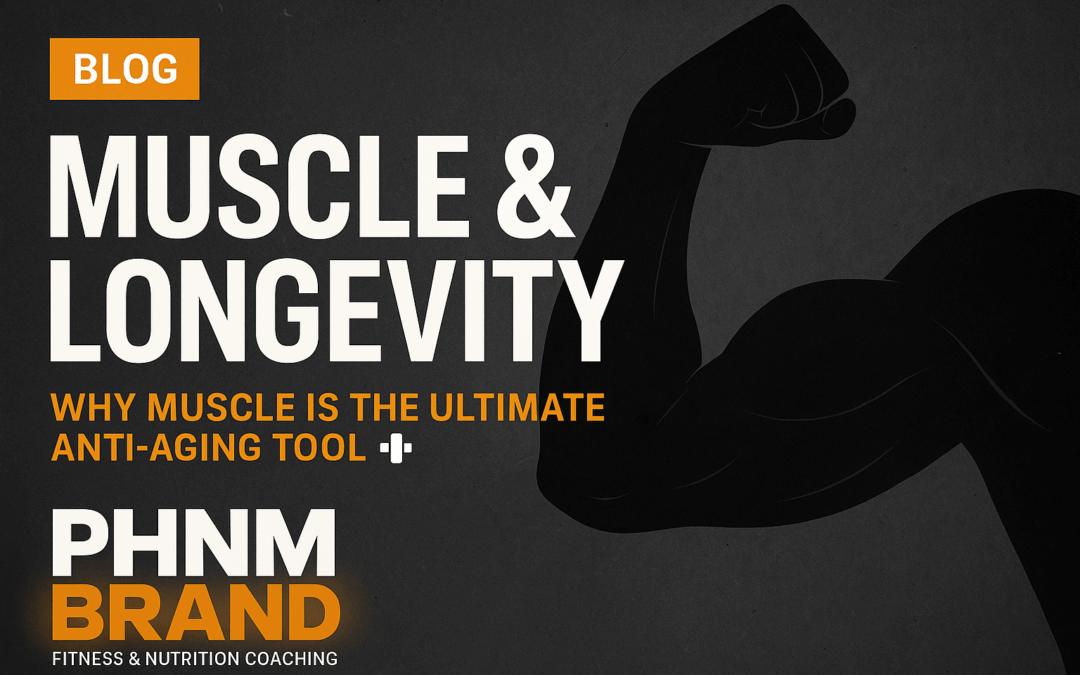Muscle & Longevity: Why Building Strength Helps You Live Longer
When most people think about building muscle, they picture aesthetics, bigger arms, stronger legs, and a more athletic frame. But here’s what most don’t realize: muscle isn’t just about looks, it’s about life.
Science is clear: the amount of muscle you have, and how strong and functional it is, plays a huge role in how well (and how long) you live. At PHNM Brand, we focus on fitness that fuels longevity, and the research backs it up.
The Science Behind Strength & Longevity
Here are five powerful stats you should know:
1. Higher Muscle Mass = Lower All-Cause Mortality
A 2014 study in the American Journal of Medicine found that people with more muscle mass had significantly lower risk of death, even when controlling for body fat. Muscle matters more than your BMI.
2. Grip Strength Predicts Lifespan
A massive global study published in The Lancet showed that every 5 kg drop in grip strength is linked to a 16% higher risk of death. It’s one of the simplest ways to assess functional strength — and your long-term health.
3. Faster Gait Speed = Longer Life
Walking speed isn’t just a test for the elderly. Slower gait speed is a strong predictor of frailty and mortality. If your legs are strong and mobile, your lifespan often reflects it.
4. Resistance Training Reduces Risk of Death
Lifting weights doesn’t just build biceps, it lowers your chances of dying from chronic disease. A 2022 BMJ meta-analysis found that 30–60 minutes of resistance training per week reduces your risk of death, cancer, and heart disease by 10–20%.
5. Muscle Supports Brain Health Too
Muscle is linked to more than mobility, it impacts your mind. Stronger individuals tend to have better cognitive function, a lower risk of dementia, and slower brain aging.
💡 What This Means for You
Whether you’re in your 30s or your 70s, muscle is your health insurance. It’s not about bodybuilding, it’s about staying independent, resilient, and capable as long as possible.
Start simple:
-
Add resistance training 2–3x per week.
-
Track your strength, not just your weight.
-
Prioritize protein and recovery.
-
Focus on function over flash — can you squat, hinge, press, carry?
We coach clients to build strength for life, not just for looks. If you’re ready to train smarter and age stronger, we’re here to guide you.
🧠 Final Thought
Your muscle is more than movement, it’s medicine. And the stronger you stay, the longer you thrive.

